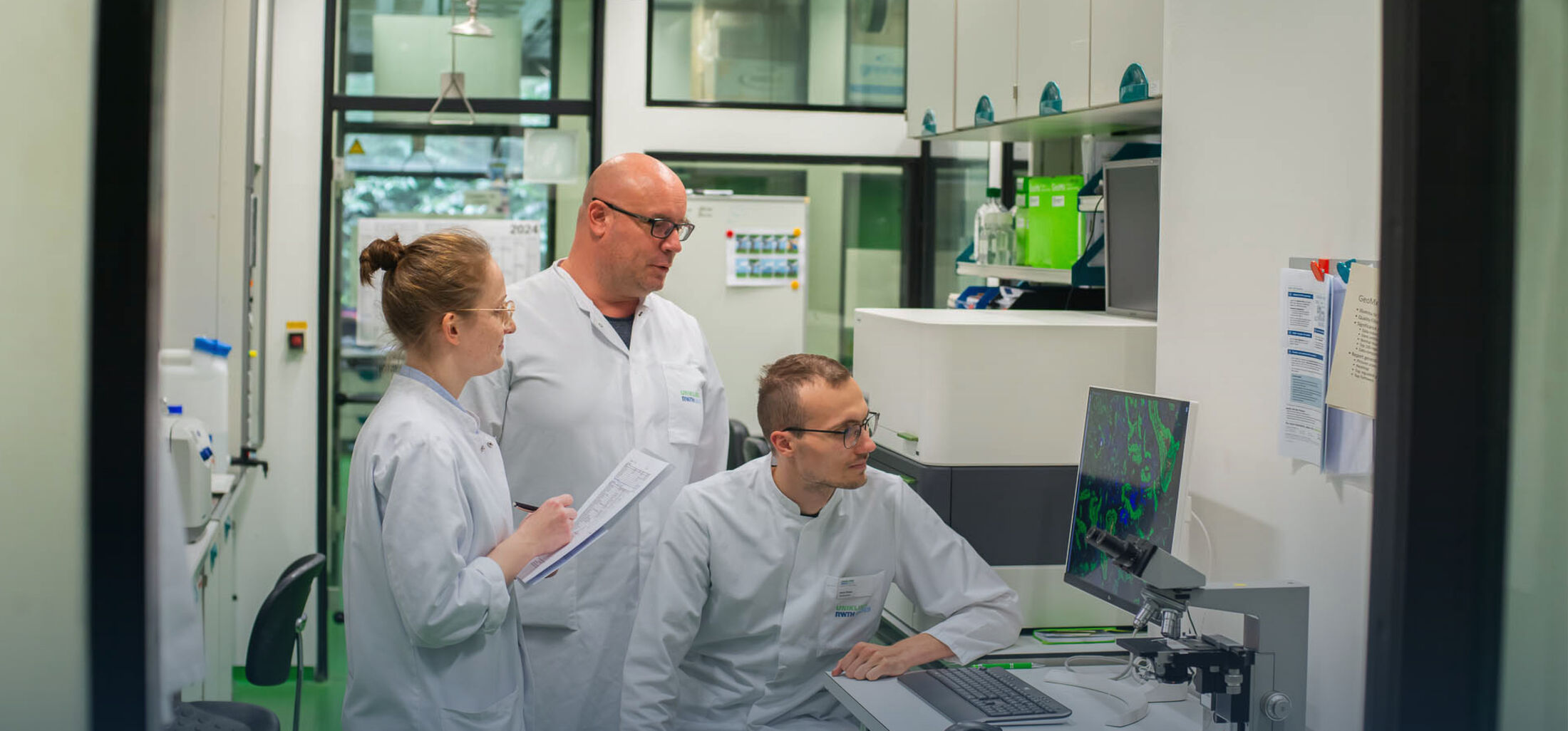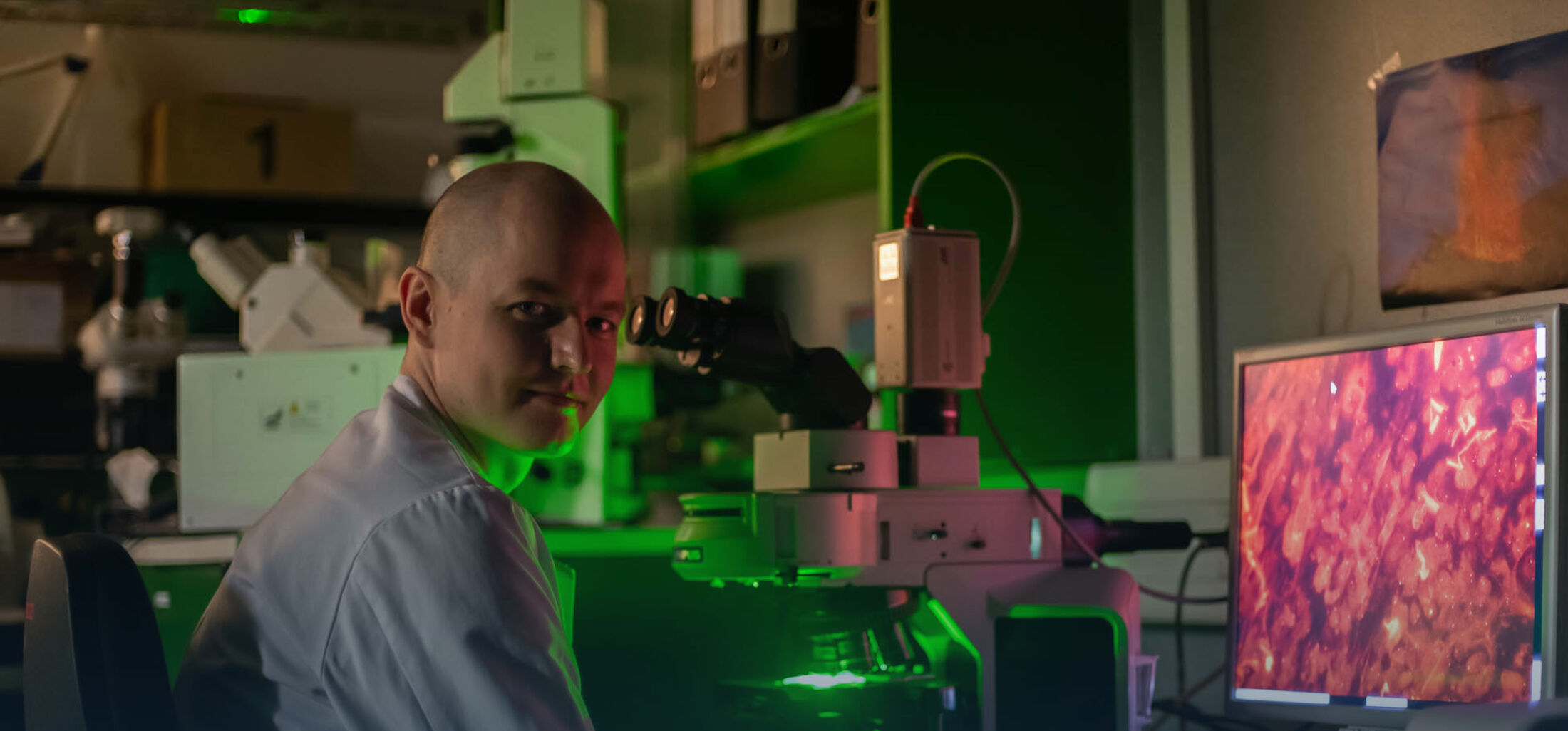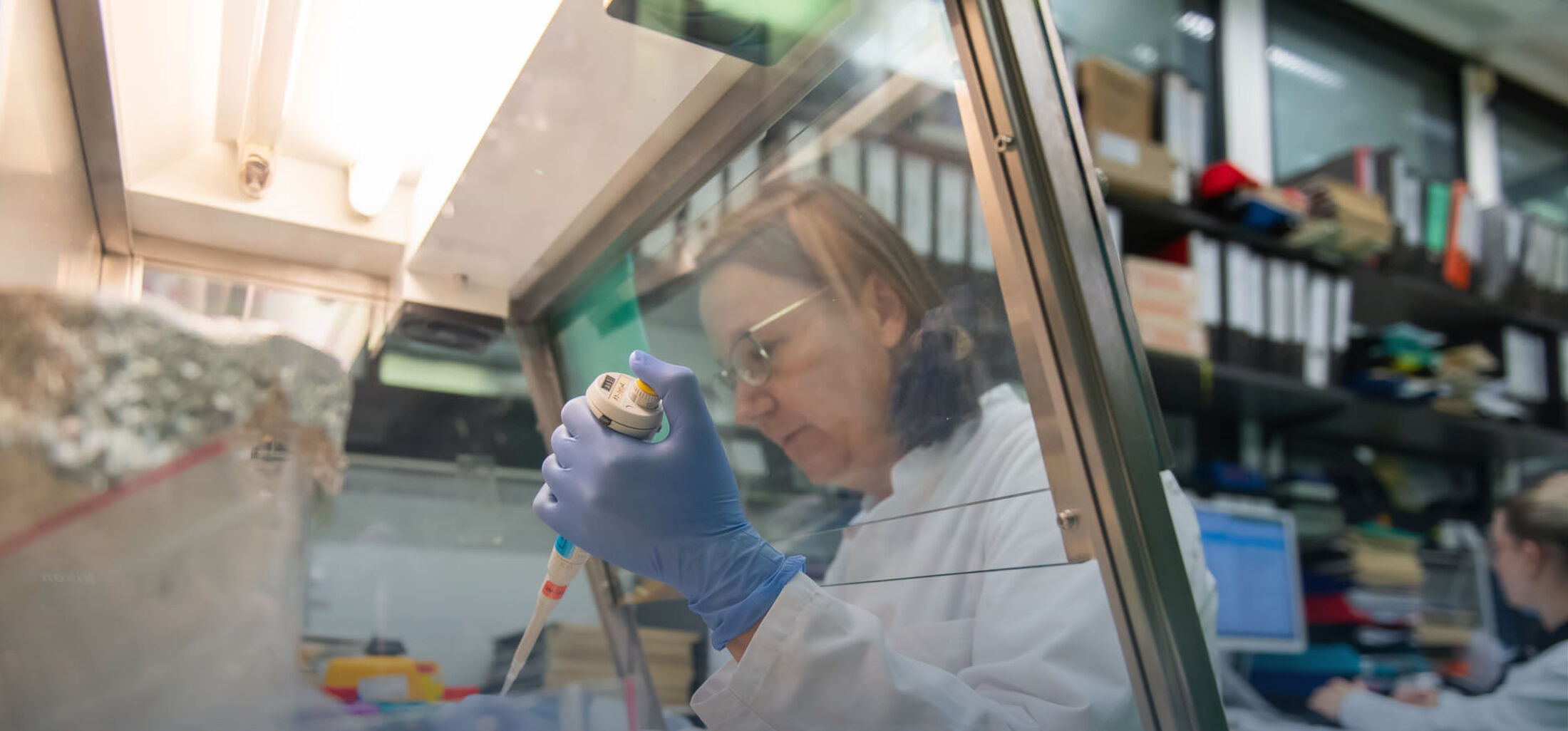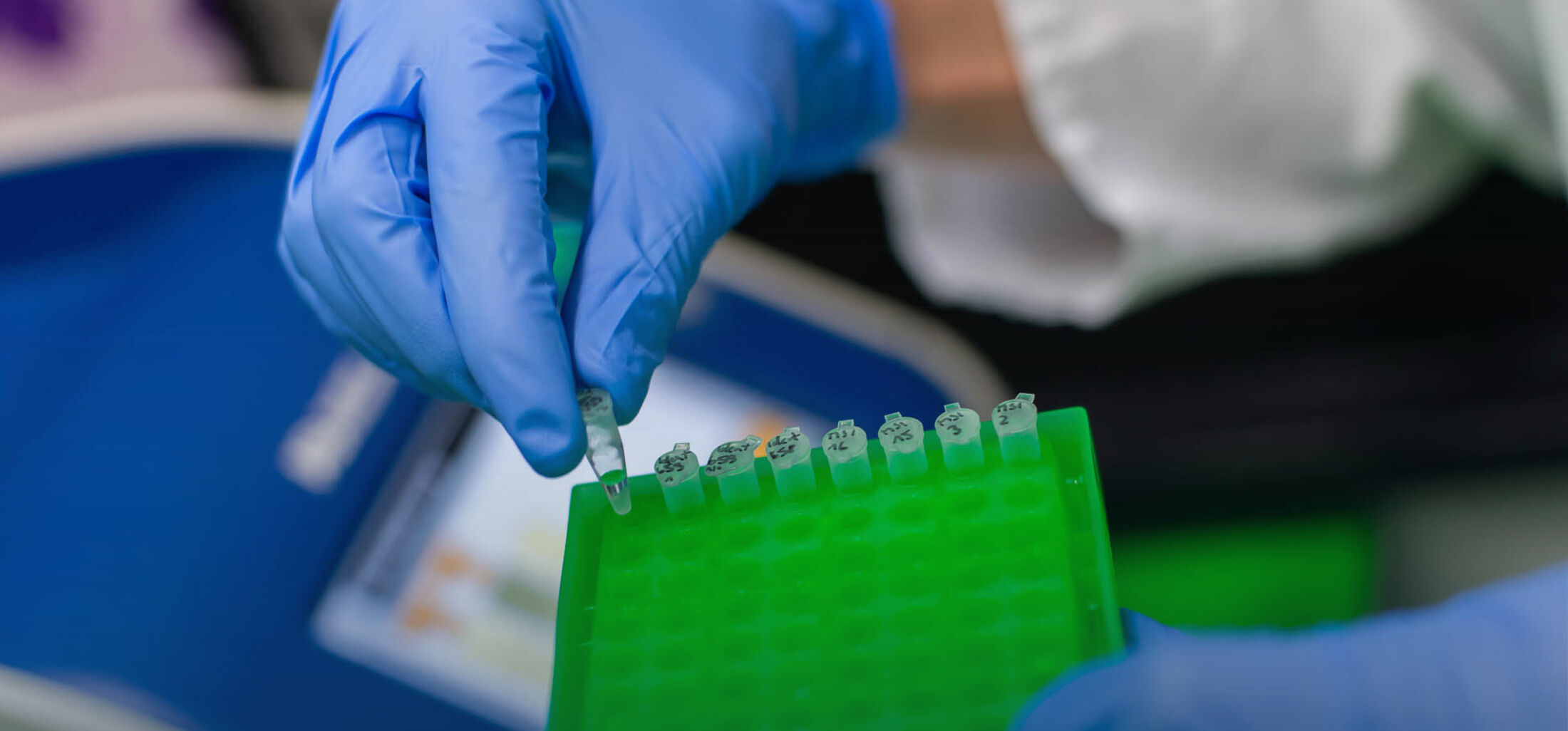Objectives - Molecular Oncology Group
The main goal of our research group at RWTH Aachen University is the characterisation of new class II tumor suppressor genes (which we call C2TSGs for short), which are often epigenetically downregulated (silenced) in cancer. We are working on C2TSGs in three cancer types: breast cancer, pancreatic cancer and recently also in cholangiocarcinoma (CCA). Our aim is to decipher the molecular signalling pathways in which these new putative tumor suppressors are involved.
One novel ECM tumor suppressor molecule that we were the first group to clone and describe in 2004 is the inter-alpha-trypsin inhibitor H5 (HUGO gene name: ITIH5). ITIH5 may belong to a special class of tumor suppressor genes, as it appears to specifically inhibit tumor progression and metastasis. Such genes are known as metastasis suppressor genes.
Alterations in the WNT signalling pathway, which is essential for normal embryonic development among other tasks, also appear to be of great importance for the development and progression of various tumor types, including breast and pancreatic cancer. In recent years, we have focused on the tumor suppressor gene SFRP1 (but also DKK3), which encode secreted inhibitors of the WNT signalling pathway that act on neighbouring cells after secretion into the extracellular matrix (ECM).
We hope that the findings from our tumor suppressor gene research can contribute to improving cancer treatment in the long term, as these candidate genes can be used to pursue new therapeutic approaches (C2TSG-based targeted therapies). In addition, epigenetic biomarkers are particularly suitable for the early detection of cancer from body fluids such as blood or urine, which has become known as liquid biopsy diagnostics.



